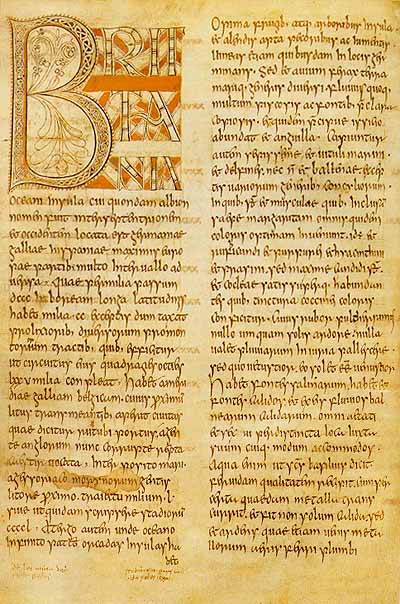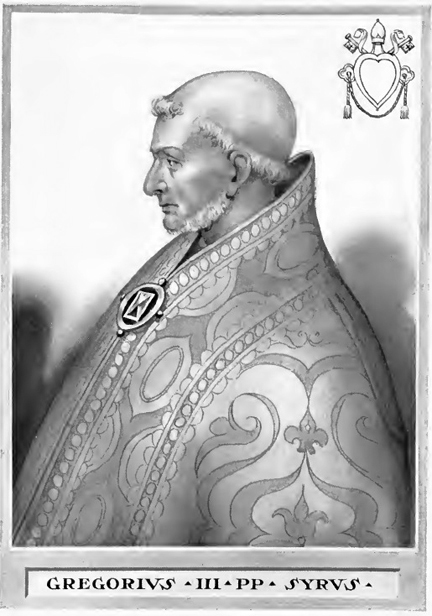|
Kinebertus
__NOTOC__ Cyneberht was a medieval Bishop of Lindsey. Cyneberht was consecrated between 716 and 731. He died in 731.Fryde, et al. ''Handbook of British Chronology'' p. 219 His death is recorded in the second continuation of the medieval chronicler Bede's ''Historia ecclesiastica gentis Anglorum The ''Ecclesiastical History of the English People'' (), written by Bede in about AD 731, is a history of the Christian Churches in England, and of England generally; its main focus is on the growth of Christianity. It was composed in Latin, and ...'' under the year 732.Higham ''(Re-)reading Bede'' p. 64 He was also one of the informants for Bede's historical works, mainly for information about his diocese.Higham ''(Re-)reading Bede'' p. 79 Bede recorded Cyneberht's information as coming from "the most reverent Bishop Cyneberht".Quoted in Higham ''(Re-)reading Bede'' p. 79 Notes Citations References * * External links * Bishops of Lindsey 731 deaths Year of b ... [...More Info...] [...Related Items...] OR: [Wikipedia] [Google] [Baidu] |
Bishop Of Lindsey
The Bishop of Lindsey was a prelate who administered an Anglo-Saxons, Anglo-Saxon diocese between the 7th and 11th centuries. The Episcopal polity, episcopal title took its name after the ancient Kingdom of Lindsey. History The diocese of Lindsey (Lindine) was established when the large Diocese of Mercia was divided in the late 7th century into the bishoprics of Bishop of Lichfield, Lichfield and Bishop of Leicester, Leicester (for Mercia itself), Bishop of Worcester, Worcester (for the Hwicce), Bishop of Hereford, Hereford (for the Magonsæte), and Lindsey (for the Lindisfaras). The bishop's cathedra, seat at ''Sidnacester'' (Syddensis) has been placed, by various commentators, at Caistor, Louth, Lincolnshire, Louth, Horncastle, Lincolnshire, Horncastle and, most often, at Stow, Lincolnshire, Stow, all in present-day Lincolnshire, England. The location remains unknown. More recently Lincoln, Lincolnshire, Lincoln has been suggested as a possible site, such as the inner-city subu ... [...More Info...] [...Related Items...] OR: [Wikipedia] [Google] [Baidu] |
Bede
Bede (; ; 672/326 May 735), also known as Saint Bede, Bede of Jarrow, the Venerable Bede, and Bede the Venerable (), was an English monk, author and scholar. He was one of the most known writers during the Early Middle Ages, and his most famous work, '' Ecclesiastical History of the English People'', gained him the title "The Father of English History". He served at the monastery of St Peter and its companion monastery of St Paul in the Kingdom of Northumbria of the Angles. Born on lands belonging to the twin monastery of Monkwearmouth–Jarrow in present-day Tyne and Wear, England, Bede was sent to Monkwearmouth at the age of seven and later joined Abbot Ceolfrith at Jarrow. Both of them survived a plague that struck in 686 and killed the majority of the population there. While Bede spent most of his life in the monastery, he travelled to several abbeys and monasteries across the British Isles, even visiting the archbishop of York and King Ceolwulf of Northumbria. ... [...More Info...] [...Related Items...] OR: [Wikipedia] [Google] [Baidu] |
Historia Ecclesiastica Gentis Anglorum
The ''Ecclesiastical History of the English People'' (), written by Bede in about AD 731, is a history of the Christian Churches in England, and of England generally; its main focus is on the growth of Christianity. It was composed in Latin, and is believed to have been completed in 731 when Bede was approximately 59 years old. It is considered one of the most important original references on Anglo-Saxon history, and according to some scholars has played a key role in the development of an English national identity. Overview The , or ''An Ecclesiastical History of the English People'', is Bede's best-known work, completed in about 731. The first of the five books begins with some geographical background and then sketches the history of England, beginning with Julius Caesar's invasion in 55 BC. A brief account of Christianity in Roman Britain, including the martyrdom of St Alban, is followed by the story of Augustine of Canterbury, Augustine's mission to England in 597, which brou ... [...More Info...] [...Related Items...] OR: [Wikipedia] [Google] [Baidu] |
Bishops Of Lindsey
The Bishop of Lindsey was a prelate who administered an Anglo-Saxons, Anglo-Saxon diocese between the 7th and 11th centuries. The Episcopal polity, episcopal title took its name after the ancient Kingdom of Lindsey. History The diocese of Lindsey (Lindine) was established when the large Diocese of Mercia was divided in the late 7th century into the bishoprics of Bishop of Lichfield, Lichfield and Bishop of Leicester, Leicester (for Mercia itself), Bishop of Worcester, Worcester (for the Hwicce), Bishop of Hereford, Hereford (for the Magonsæte), and Lindsey (for the Lindisfaras). The bishop's cathedra, seat at ''Sidnacester'' (Syddensis) has been placed, by various commentators, at Caistor, Louth, Lincolnshire, Louth, Horncastle, Lincolnshire, Horncastle and, most often, at Stow, Lincolnshire, Stow, all in present-day Lincolnshire, England. The location remains unknown. More recently Lincoln, Lincolnshire, Lincoln has been suggested as a possible site, such as the inner-city subu ... [...More Info...] [...Related Items...] OR: [Wikipedia] [Google] [Baidu] |
Edgar Of Lindsey
__NOTOC__ Edgar (or Eadgar) was a medieval Bishop of Lindsey. Edgar was consecrated possibly in 693. He died between 716 and 731.Fryde, et al. ''Handbook of British Chronology'' p. 219 Citations References * External links * Bishops of Lindsey {{England-bishop-stub ... [...More Info...] [...Related Items...] OR: [Wikipedia] [Google] [Baidu] |
Alwig
__NOTOC__ Alwig (or Alwigh) was a medieval Bishop of Lindsey The Bishop of Lindsey was a prelate who administered an Anglo-Saxons, Anglo-Saxon diocese between the 7th and 11th centuries. The Episcopal polity, episcopal title took its name after the ancient Kingdom of Lindsey. History The diocese of Lindse .... Alwig was consecrated in 733. He died in 750.Fryde, et al. ''Handbook of British Chronology'' p. 219 Citations References * External links * Bishops of Lindsey 750 deaths Year of birth unknown {{England-bishop-stub ... [...More Info...] [...Related Items...] OR: [Wikipedia] [Google] [Baidu] |
Christianity
Christianity is an Abrahamic monotheistic religion, which states that Jesus in Christianity, Jesus is the Son of God (Christianity), Son of God and Resurrection of Jesus, rose from the dead after his Crucifixion of Jesus, crucifixion, whose coming as the Messiah#Christianity, messiah (Christ (title), Christ) was Old Testament messianic prophecies quoted in the New Testament, prophesied in the Old Testament and chronicled in the New Testament. It is the Major religious groups, world's largest and most widespread religion with over 2.3 billion followers, comprising around 28.8% of the world population. Its adherents, known as Christians, are estimated to make up a majority of the population in Christianity by country, 157 countries and territories. Christianity remains Christian culture, culturally diverse in its Western Christianity, Western and Eastern Christianity, Eastern branches, and doctrinally diverse concerning Justification (theology), justification and the natur ... [...More Info...] [...Related Items...] OR: [Wikipedia] [Google] [Baidu] |
731 Deaths
__NOTOC__ Year 731 ( DCCXXXI) was a common year starting on Monday of the Julian calendar. The denomination 731 for this year has been used since the early medieval period, when the Anno Domini calendar era became the prevalent method in Europe for naming years. Events By place Europe * Umayyad conquest of Gaul: Munuza, Moorish governor of Cerdagne (eastern Pyrenees), rebels against Umayyad authority. He is defeated and executed by Muslim forces under Abdul Rahman Al Ghafiqi at Urgell (Catalonia). Muslim garrisons in Septimania raid the cities Millau and Arles. * Ragenfrid, ex-mayor of the palace of Neustria, meets Duke Eudes of Aquitaine, to accept his rule and independence from the Frankish Kingdom. Fearing an alliance against him, Charles Martel exiles Ragenfrid's supporter Wandon of Fontenelle, and imprisons bishop Aimar of Auxerre. * Charles Martel leads two raids across the Loire River into the Berry region. The Franks seize and plunder Bourges (central Franc ... [...More Info...] [...Related Items...] OR: [Wikipedia] [Google] [Baidu] |


